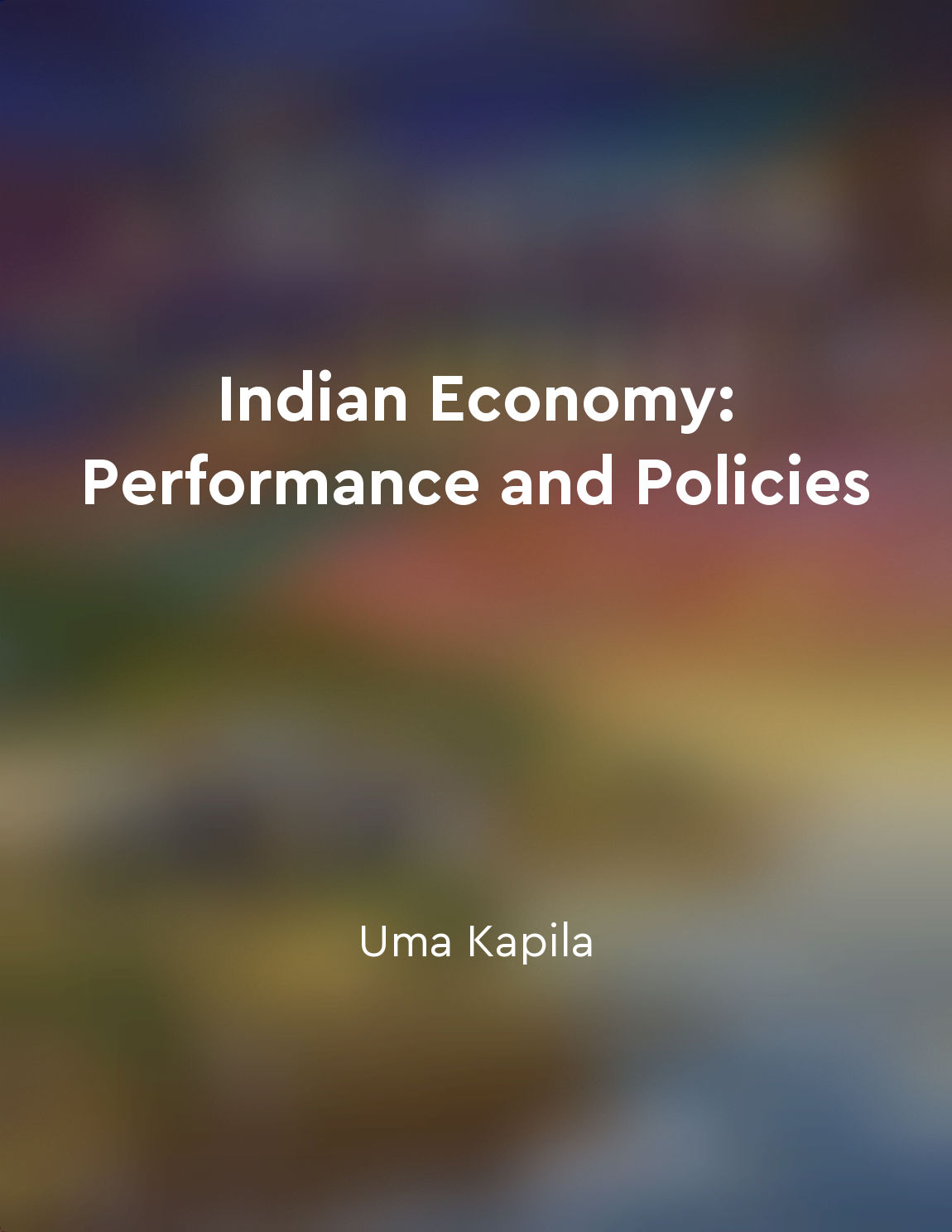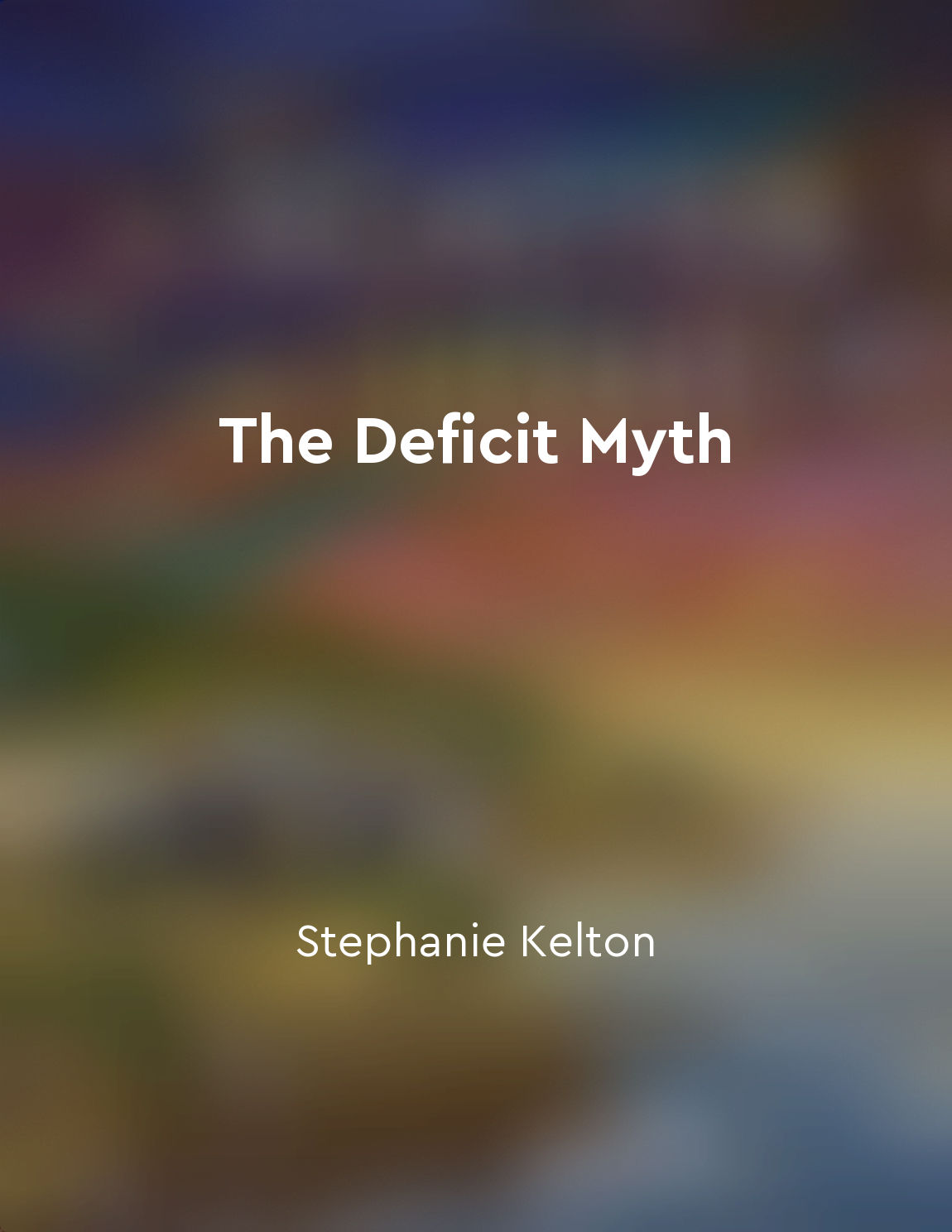Aggregate demand and supply determine macroeconomic outcomes from "summary" of Principles of Macroeconomics by N. Gregory Mankiw
Aggregate demand and supply are two crucial concepts in macroeconomics that play a significant role in determining overall economic outcomes. Aggregate demand refers to the total amount of goods and services that households, businesses, and the government are willing and able to buy at a given price level. On the other hand, aggregate supply represents the total amount of goods and services that producers in an economy are willing and able to supply at a given price level. The interaction between aggregate demand and aggregate supply ultimately determines the equilibrium level of output and price level in an economy. When aggregate demand exceeds aggregate supply, it leads to an increase in the price level as businesses raise prices to meet the higher demand. This scenario is known as demand-pull inflation, where inflation is driven by excess demand in the economy. Conversely, when aggregate supply exceeds aggregate demand, it results in a decrease in the price level as businesses lower prices to clear excess inventory. This situation is known as cost-push deflation, where falling prices are caused by a decrease in production costs or a decrease in demand for goods and services. Changes in aggregate demand and supply can have a profound impact on macroeconomic outcomes such as economic growth, inflation, and unemployment. For example, an increase in aggregate demand can lead to higher economic growth as businesses expand production to meet the growing demand. However, if the economy is already operating at full capacity, this increase in demand may result in inflation as businesses struggle to meet the increased demand with limited resources. Similarly, a decrease in aggregate supply can lead to a decrease in economic growth as businesses cut back on production due to higher costs. This decrease in supply can also lead to higher prices and lower output, resulting in stagflation – a combination of high inflation and high unemployment.- Understanding the dynamics of aggregate demand and supply is essential for policymakers and economists to make informed decisions about managing the economy. By analyzing the interplay between these two factors, we can better predict and explain macroeconomic outcomes and develop strategies to promote sustainable economic growth and stability.
Similar Posts
Gross Domestic Product (GDP) measures the total value of goods and services produced in a country
Gross Domestic Product (GDP) is a crucial measure in economics. It tells us the total value of goods and services produced with...
Fiscal policy determines government spending
Fiscal policy plays a crucial role in determining government spending. It involves the use of government spending and taxation ...

Banking financial institutions regulatory framework
The regulatory framework for banking financial institutions in India is vital for maintaining stability in the financial system...
Regulation is essential to maintain stability in the financial system
Regulation plays a crucial role in ensuring the smooth functioning of the financial system. Without proper oversight and rules ...
A free society relies on the rule of law
A free society cannot function without a well-established and respected legal framework. The rule of law is essential in mainta...

The government doesn't need to balance its budget like a household
The notion that the government must operate its budget in the same way a household does is deeply ingrained in our collective u...
Bitcoin miners compete to validate transactions and earn rewards through a process called proof of work
Bitcoin miners are the backbone of the network, responsible for securing the system and processing transactions. They act as au...
Oil subsidies impact government budgets
The issue of oil subsidies is a significant one that has far-reaching implications, particularly for government budgets. These ...

Regulation can stifle innovation
Bork argues that when the government intervenes in the market through regulation, it can have unintended consequences that hind...

Opportunity cost influences decisionmaking
Opportunity cost is a fundamental concept in economics that plays a crucial role in decision-making. It refers to the value of ...

